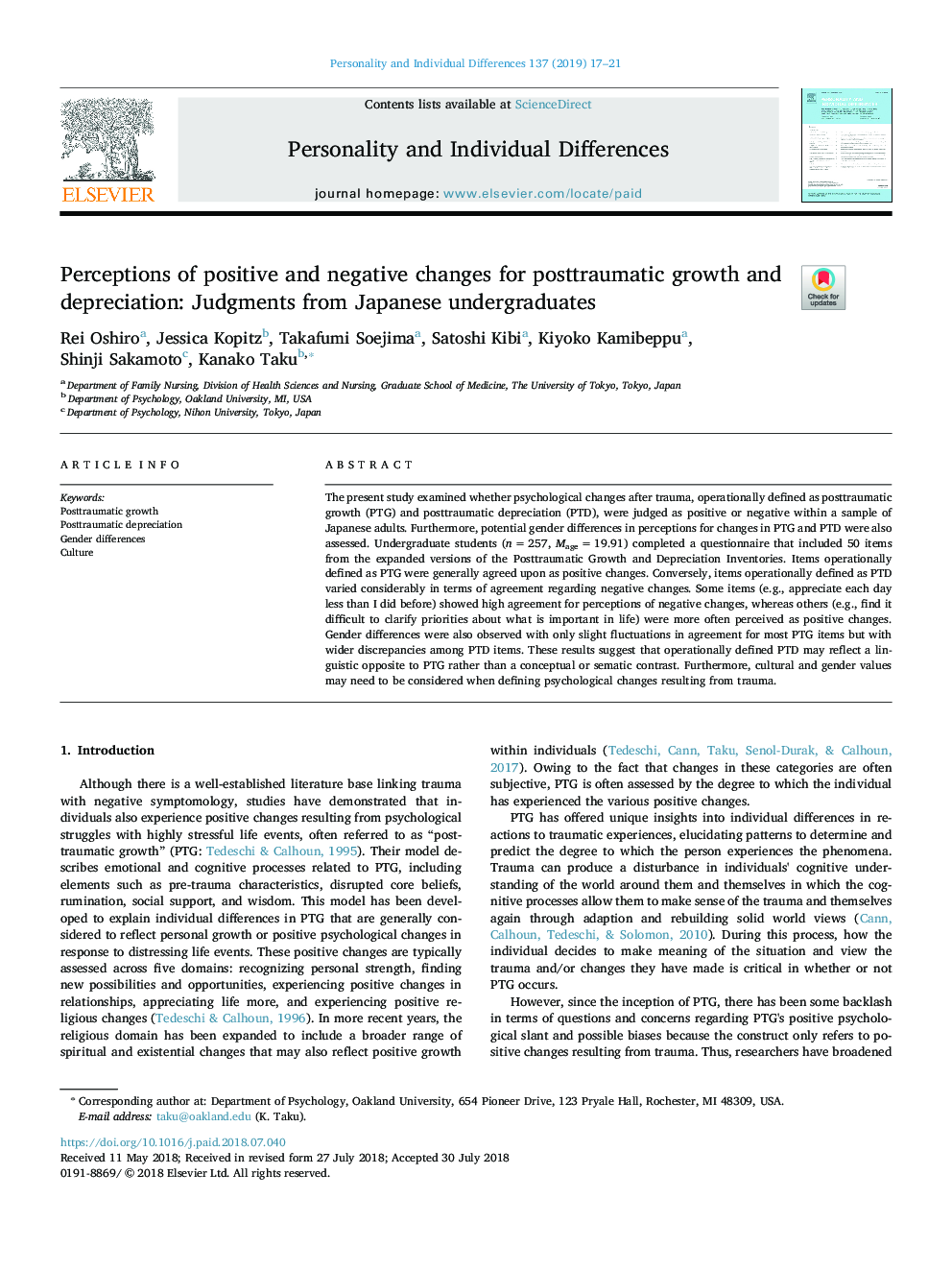| Article ID | Journal | Published Year | Pages | File Type |
|---|---|---|---|---|
| 7248322 | Personality and Individual Differences | 2019 | 5 Pages |
Abstract
The present study examined whether psychological changes after trauma, operationally defined as posttraumatic growth (PTG) and posttraumatic depreciation (PTD), were judged as positive or negative within a sample of Japanese adults. Furthermore, potential gender differences in perceptions for changes in PTG and PTD were also assessed. Undergraduate students (nâ¯=â¯257, Mageâ¯=â¯19.91) completed a questionnaire that included 50 items from the expanded versions of the Posttraumatic Growth and Depreciation Inventories. Items operationally defined as PTG were generally agreed upon as positive changes. Conversely, items operationally defined as PTD varied considerably in terms of agreement regarding negative changes. Some items (e.g., appreciate each day less than I did before) showed high agreement for perceptions of negative changes, whereas others (e.g., find it difficult to clarify priorities about what is important in life) were more often perceived as positive changes. Gender differences were also observed with only slight fluctuations in agreement for most PTG items but with wider discrepancies among PTD items. These results suggest that operationally defined PTD may reflect a linguistic opposite to PTG rather than a conceptual or sematic contrast. Furthermore, cultural and gender values may need to be considered when defining psychological changes resulting from trauma.
Related Topics
Life Sciences
Neuroscience
Behavioral Neuroscience
Authors
Rei Oshiro, Jessica Kopitz, Takafumi Soejima, Satoshi Kibi, Kiyoko Kamibeppu, Shinji Sakamoto, Kanako Taku,
